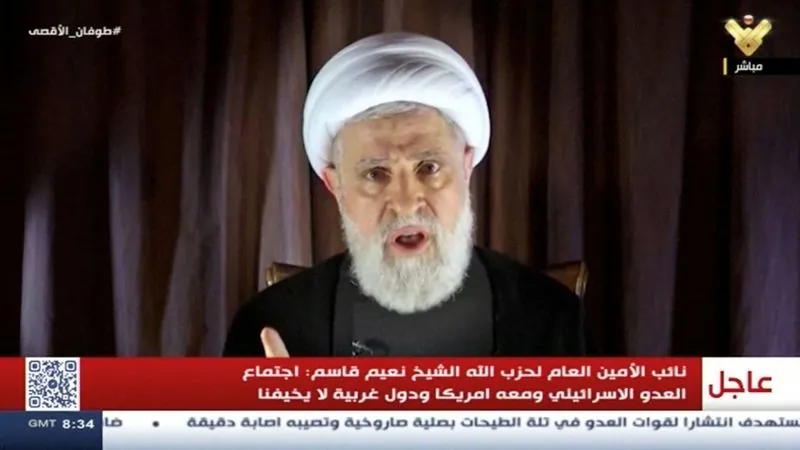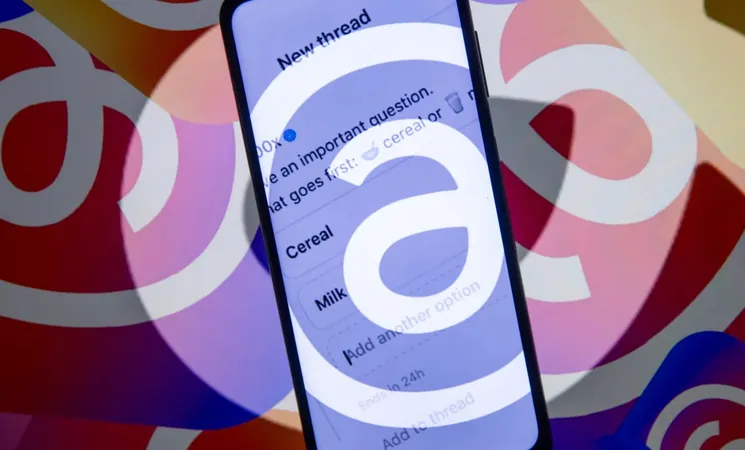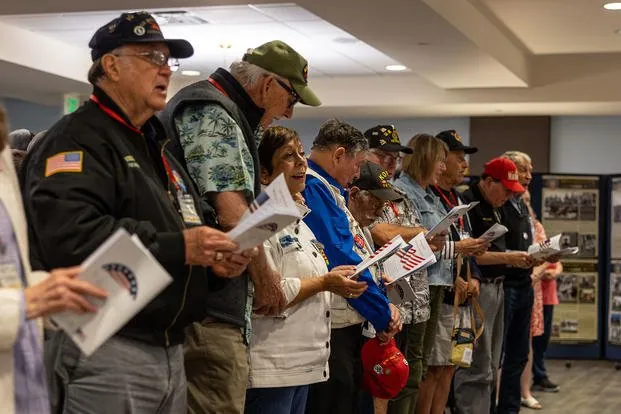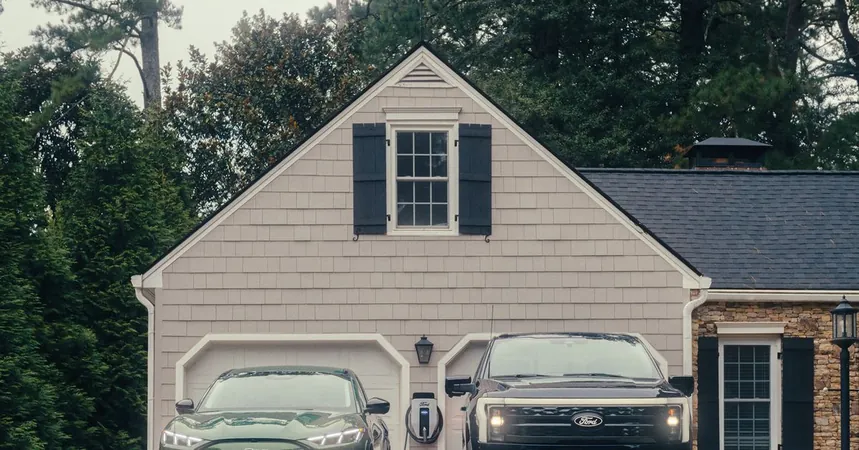
Historic Shift: Hezbollah Backs Ceasefire in Lebanon Amid Israel’s Escalating Offensive
2024-10-08
Author: Ming
Hezbollah Endorses Ceasefire
In a significant development, Hezbollah has publicly endorsed efforts for a ceasefire in Lebanon for the first time, as confirmed by Deputy Secretary General Naim Qassem on Tuesday. This endorsement diverges from the group’s previous stance, which conditioned any cessation of hostilities on a ceasefire in Gaza.
“We support the political initiatives under Parliament Speaker Nabih Berri aimed at achieving a ceasefire. Once the ceasefire is in place, we will collaboratively discuss other details,” Qassem stated, signaling a potential shift in Hezbollah's approach to the ongoing conflicts.
Background of Hezbollah's Military Engagements
The backdrop of this endorsement dates back to October 8 last year, when Hezbollah began its military engagements against Israel in solidarity with Hamas, which had initiated hostilities by attacking Israel from Gaza. Historically, Hezbollah declared its operations contingent upon a ceasefire with Hamas—something Israel has rejected, insisting that Hezbollah's actions be distinct from Gaza’s conflict.
Tensions Following Nasrallah's Assassination
Qassem marked the anniversary of Hezbollah’s active participation in the regional conflict, refraining from linking a Gaza ceasefire to the situation in Lebanon. This statement comes in the wake of heightened tensions following the assassination of Hezbollah leader Hassan Nasrallah last month by Israeli forces, catalyzing an uptick in exchanges of fire between Hezbollah and the Israeli Defense Forces (IDF).
Role of Nabih Berri in Ceasefire Negotiations
Amidst these tensions, Nabih Berri, a prominent figure in Lebanon's political landscape and leader of the Shiite Amal party in alliance with Hezbollah, has played a pivotal role in mediating ceasefire negotiations with Western stakeholders. Recently, Lebanese Foreign Minister Abdallah Bou Habib revealed that Nasrallah had tentatively agreed to a temporary ceasefire, following calls from international leaders, including US President Joe Biden and French President Emmanuel Macron, during the UN General Assembly. However, Nasrallah’s subsequent assassination by Israeli forces cast doubt on these agreements.
US Administration's Focus
US officials have indicated that the Biden administration is not pursuing the revival of the ceasefire talks but is instead focused on managing Israel's military actions in Lebanon and against Iranian influences in the region.
Israeli Response
In a contrasting viewpoint, Tzipi Hotovely, the Israeli ambassador to the UK, dismissed Bou Habib’s claims regarding Nasrallah's agreement to a ceasefire as “ridiculous,” stressing that Hezbollah's rhetoric does not align with any real concessions.
Hezbollah's Military Readiness
While Qassem acknowledged the support for ceasefire discussions, his speech conveyed a resolute and aggressive stance, asserting Hezbollah’s readiness to continue its military engagements. “If the enemy continues its war, then the battlefield will be decisive, and the battlefield belongs to us,” he warned, underscoring the group's commitment to retaliate.
Escalation of Attacks
On the ground, Hezbollah escalated its rocket attacks, launching significant barrages towards the Israeli cities of Haifa and Kiryat, marking one of the most substantial assaults on these areas since the conflict reignited. The IDF reported that while many rockets were intercepted or landed in unpopulated regions, some buildings were directly impacted in Kiryat Yam and Kiryat Motzkin.
Uncertain Ceasefire Prospects
As Israel responds with expanded military operations in southern Lebanon, the prospect of a durable ceasefire remains uncertain, painting a grim picture for the stability of the region amidst ongoing hostilities.



 Brasil (PT)
Brasil (PT)
 Canada (EN)
Canada (EN)
 Chile (ES)
Chile (ES)
 España (ES)
España (ES)
 France (FR)
France (FR)
 Hong Kong (EN)
Hong Kong (EN)
 Italia (IT)
Italia (IT)
 日本 (JA)
日本 (JA)
 Magyarország (HU)
Magyarország (HU)
 Norge (NO)
Norge (NO)
 Polska (PL)
Polska (PL)
 Schweiz (DE)
Schweiz (DE)
 Singapore (EN)
Singapore (EN)
 Sverige (SV)
Sverige (SV)
 Suomi (FI)
Suomi (FI)
 Türkiye (TR)
Türkiye (TR)